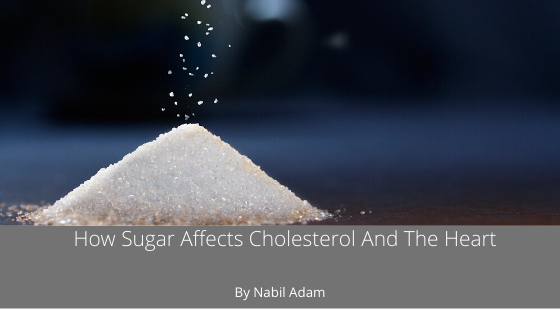It’s been well-documented that sugar has an adverse effect on our bodies. A higher consumption than is recommended for sugar results in spiked blood sugar levels along with decreased energy and a higher risk of diabetes. Recently, a study found that adults who consume one or more sugary beverages are at an increased risk of developing higher levels of unhealthy fats (like LDL cholesterol or triglycerides). High cholesterol numbers, especially LDL cholesterol, can cause a multitude of problems including heart disease, increased risk of heart attack, and high blood pressure. Listed below is how sugar affects cholesterol and the heart.
Sugar and cholesterol:
As mentioned above, sugar increases the level of bad cholesterol and triglycerides in your body compared to individuals who consume sugary beverages rarely. One shocking statistic is that 98% of people who consumed sugary drinks reguarly have a higher risk of developing HDL cholesterol and over 50% chance of increasing their triglyceride levels. HDL cholesterol is the good cholesterol vital for preventing heart disease and eliminating bad cholesterol.
Sugar and your heart:
While our body does require some form of sugar, high consumption of sugar can be disastrous for the heart. The more your heart has to pump from physical activity or a poor diet, the more blood it requires. If your bad cholesterol levels are high, it restricts the blood flow from and to the heart to other parts of the body. Sugar has been shown to increase LDL cholesterol levels and triglyceride levels, both of which can cause blood clots. Blood clots can cause heart disease, which in turn can cause a heart attack. High sugar levels can also a “metabolic syndrome”. Metabolic syndrome refers to a number of body issues, including but not limited to bodyweight, diabetes, and unregulated cholesterol levels.
Conclusion:
As with any consumption of foods or beverages, sugar must be consumed in moderation. High consumption of sugary beverages leads to unhealthy high levels of cholesterol. Higher cholesterol levels have a direct impact on heart health and how freely blood moves from and to the heart.

